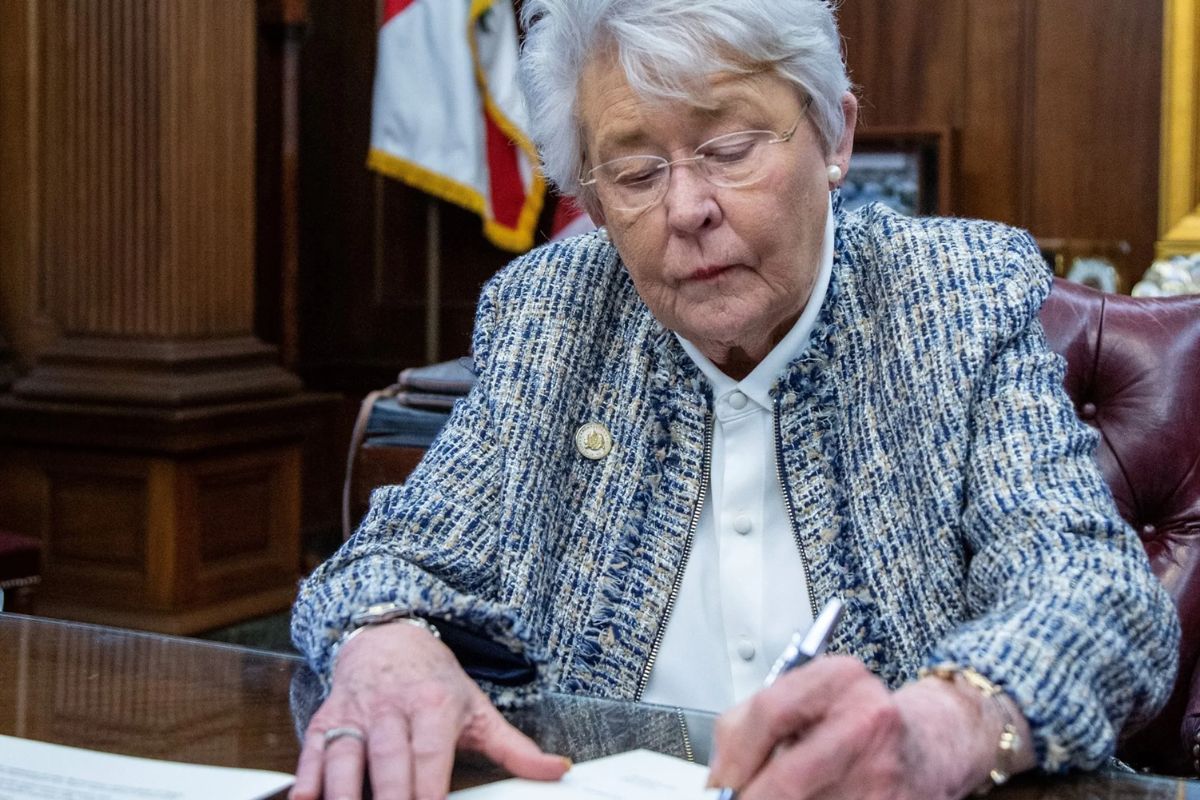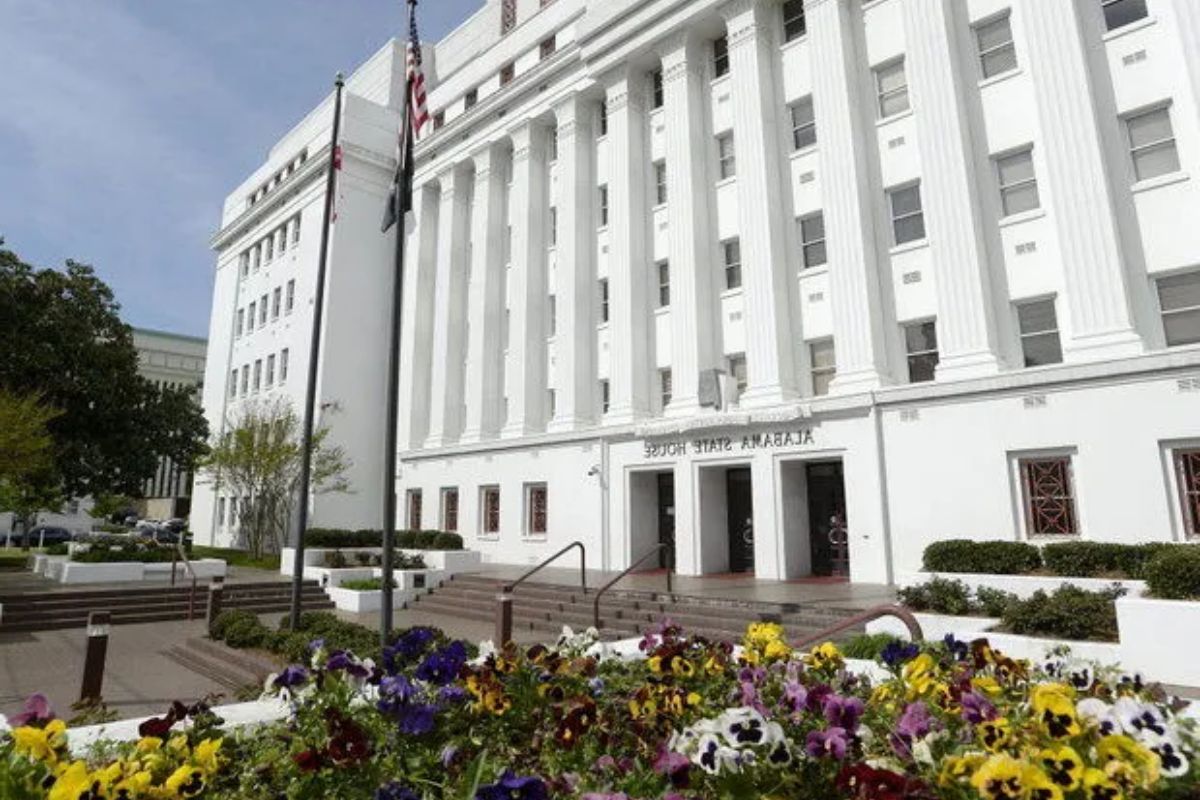Alabama State Leaders Continue Addressing: In the ongoing pursuit of progress and reform, Alabama state leaders persistently tackle past issues that have hindered the state’s development.
The legislative accomplishments achieved in the realm of criminal justice, highlighting the flaws identified in the work release program and the authority of the parole board.
Additionally, it examines the state’s efforts to implement education reforms and allocate funding effectively, ultimately aiming to foster economic prosperity and resilience.
Despite persistent challenges, Alabama leaders strive to navigate a path towards a positive future.
Key Takeaways
- Legislative accomplishments in criminal justice focused on strengthening penalties for fentanyl trafficking, retail theft, and gang violence.
- Flaws in the work release program and parole board authority include lack of supervision and limited oversight in decision-making processes.
- Education reform and funding allocation are pressing issues, with a need for improved scholastic achievement and exploration of innovative approaches like charter schools and voucher programs.
- Alabama’s economic prosperity and resilience are evident through a $42 billion influx of new capital investment, record employment rates, and a commitment to workforce development and education.
Legislative Accomplishments in Criminal Justice
Alabama’s state leaders have achieved significant legislative accomplishments in the realm of criminal justice. In recent years, the state has taken crucial steps to address persistent issues and enhance public safety through the enactment of various laws.
One notable accomplishment is the strengthening of penalties for fentanyl trafficking, retail theft, and gang violence. By imposing stricter punishments for these offenses, Alabama aims to deter criminals and protect its citizens from the dangers associated with these activities.
Additionally, amendments to good time laws have been made, allowing for a more effective and fair criminal justice system. These legislative changes demonstrate the state’s commitment to tackling crime and ensuring the safety and well-being of its residents.
Through these measures, Alabama is actively addressing past issues and working towards a more secure and just society.
Flaws in the Work Release Program and Parole Board Authority
The flaws in Alabama’s work release program and the authority of the parole board continue to be a pressing concern for state leaders as they address past issues in the criminal justice system. These flaws have raised questions about public safety and the effectiveness of rehabilitation efforts. To provide a clearer picture of the situation, consider the following four points:
- Lack of supervision: The work release program allows felons, including those convicted of murder, to be released unsupervised. This raises concerns about the potential for reoffending and the safety of the community.
- Limited oversight: The parole board’s authority in retaining prisoners convicted of severe crimes has come under scrutiny. Critics argue that the board should have stricter criteria and more transparency in their decision-making process.
- Rehabilitation effectiveness: The flaws in the work release program and parole board’s authority raise doubts about the effectiveness of rehabilitation efforts. It is essential to evaluate whether these programs are truly helping individuals reintegrate into society and reduce recidivism rates.
- Balancing public safety and rehabilitation: State leaders face the challenge of striking a balance between providing opportunities for rehabilitation and ensuring public safety. Finding the right approach requires careful consideration of the flaws in the current system and exploring potential reforms to address these concerns.

Education Reforms and Funding Allocation
Addressing the challenges in Alabama’s education system, state leaders are now focusing on implementing education reforms and strategically allocating funding.
Despite the significant investment of $8.8 billion in the education budget and an additional $2.8 billion in supplemental funds, the state continues to struggle with low scholastic achievement.
In response, there is a growing call for education reform, particularly in the form of school choice. State leaders recognize the need to address these issues and are actively seeking solutions to improve the quality of education in Alabama.
This includes exploring innovative approaches to education, such as charter schools and voucher programs, as well as identifying areas where funding can be allocated more effectively.
Economic Prosperity and Resilience
Alabama’s economy has demonstrated remarkable resilience and prosperity, attracting new businesses and fostering growth in existing ones. Governor Kay Ivey‘s administration has reported a significant influx of new capital investment, amounting to a staggering $42 billion. As a result, the state has experienced record employment rates and achieved the lowest unemployment levels in its history. This economic prosperity can be attributed to several factors, including the state’s favorable business climate, strategic investments in infrastructure, and targeted industry recruitment efforts.
Alabama’s economic resilience is further bolstered by its diverse range of industries, including automotive manufacturing, aerospace, and biotechnology. The state’s strategic location, abundant natural resources, and robust transportation network have attracted major corporations and encouraged the expansion of existing businesses. Moreover, Alabama’s commitment to workforce development and education has ensured a skilled labor force that meets the demands of these industries.
While Alabama’s economic prosperity is commendable, there are some challenges that need to be addressed. The state’s heavy reliance on manufacturing industries, particularly automotive, makes it susceptible to economic downturns and industry-specific fluctuations. Additionally, there is a need to diversify the economy further and attract investments in emerging sectors, such as renewable energy and technology. Lastly, ensuring equitable distribution of economic benefits across all regions of the state remains a priority.

To successfully navigate persistent challenges, state leaders in Alabama are implementing strategies to foster a positive future for the state. These strategies include:
- Diversifying the economy: State leaders understand the importance of reducing dependence on a single industry. Efforts are being made to attract businesses from various sectors, creating a more stable and resilient economy.
- Investing in education and workforce development: Recognizing that a skilled workforce is essential for economic growth, Alabama is prioritizing education and workforce development programs. These initiatives aim to equip individuals with the skills needed to thrive in a changing job market.
- Enhancing infrastructure: Adequate infrastructure is crucial for attracting businesses and improving quality of life. State leaders are investing in transportation networks, broadband access, and other infrastructure projects to support economic development.
- Addressing social issues: Alabama is working towards addressing social issues such as poverty, inequality, and healthcare access. By tackling these challenges head-on, state leaders aim to create a more inclusive and equitable society for all residents.
Through these strategies, Alabama’s state leaders are paving the way for a positive future, ensuring long-term prosperity and well-being for its residents.
Conclusion Of Alabama State Leaders Continue Addressing
Alabama state leaders have made significant strides in addressing past issues. Particularly, they have made progress in the areas of criminal justice, education, and economic prosperity.
However, there are still persistent challenges that need to be navigated in order to ensure a positive future for the state.
By continuing to focus on these issues and implementing necessary reforms, Alabama can work towards a more equitable and prosperous society for all its residents.

